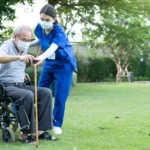A brain injury can impact children differently than adults because the developing brain responds uniquely to trauma. Specialized pediatric care is often needed to address these differences effectively. Awareness of common conditions and treatment approaches can help families make informed decisions and support recovery. Here are a few things to know about common conditions and treatments in pediatric neurology:
Pediatric Brain Injuries
A brain injury happens when an external force impacts the head, and in children, falls are the most common cause. Sports incidents and vehicle accidents also contribute to pediatric cases, while older adults face similar risks due to balance challenges. Children’s developing motor skills and judgment increase their vulnerability during play and athletic activities.
The severity of the injury guides the treatment approach. Mild cases often improve with rest and monitoring, while moderate to severe injuries may require comprehensive medical care. Symptoms can vary widely, ranging from persistent headaches, dizziness, and nausea to more severe signs, such as seizures, slurred speech, or fluid drainage from the ears or nose. Delayed symptom onset requires the same level of attention as those appearing immediately.
Understanding Concussion Effects
Concussions occur when the brain shifts rapidly inside the skull, causing chemical changes that disrupt its function. They often result from falls or direct impacts and can lead to memory issues, difficulty concentrating, and challenges with balance or coordination. While most concussions do not cause loss of consciousness, medical evaluation is recommended to monitor symptoms. Recovery times vary, with some children improving in days and others requiring weeks or months, and gradual return to activities supports the healing process.
Managing Brain Injury
The severity of the injury guides treatment for brain injuries. Mild injuries are often managed conservatively, with limited physical and mental activity and over-the-counter medications to address discomfort under medical supervision. These approaches aim to support recovery while minimizing additional strain on the brain.
Moderate to severe injuries require more intensive care and often involve prescription medications to manage symptoms. Rehabilitation therapies, including physical, occupational, and speech therapy, support the restoration of strength, daily living skills, and communication abilities. In some cases, surgery is necessary to address internal bleeding, repair skull fractures, or relieve pressure buildup.
Preventing Brain Complications
Untreated brain injuries can lead to serious issues, including blood clots that block circulation, strokes from damaged vessels, or severe impairment of consciousness, such as coma. In extreme cases, brain death is possible. Early intervention, regular monitoring, and adherence to treatment plans help reduce these risks and track recovery progress effectively.
Pediatric neurologists bring specialized knowledge of developing brains, guiding accurate diagnosis and tailored treatment. Comprehensive testing, including imaging, neurological exams, and cognitive assessments, helps determine the extent and impact of the injury. Coordinated care, family involvement, and education on warning signs support recovery, while prompt attention to severe or new symptoms supports proper management and reduces potential complications.
Moving Forward After Brain Injury
Rest provides the foundation for recovery, giving the body and brain time to heal while minimizing stimulation from screens, noise, and bright lights. Gradually resuming activities under medical guidance helps prevent setbacks and allows families to monitor for the return of symptoms. Regular follow-up appointments and careful documentation of progress support informed adjustments to the treatment plan. Consult a pediatric specialist to create a tailored recovery plan and help your child return to daily activities safely.











